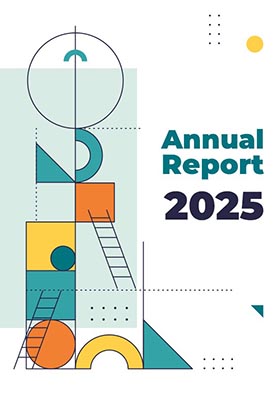Al Quds University, in collaboration with Stanford University, hosted the "Women in Data Science" conference where the conference provides an opportunity to get the latest in data science in various fields, to learn about the successful method used by leading data science companies and to communicate with professionals in this field.
The conference was opened by the President of the University. Imad Abu Kishk, who stressed that the Al Quds University has worked to create and develop programs to support Palestinian women. Al-Quds University joined the network of specialized data sciences, after a year of hard work with Stanford University, which is today one of the fifty-three countries that hold this conference in the same period. Came after the insistence of the university and the organizers of the conference in order to strengthen the status of Jerusalem in the world.
Dr. Abu Kishk added: "The university has established an incubator for business in Jerusalem and will focus on women and empowering the Jerusalem family by creating employment opportunities especially in the field of information technology and other specializations," he said, adding that the university seeks to graduate graduates of both sexes, in the field of data technology, meet the needs of the domestic market, and contribute to increasing the employment rate of graduates of these technological disciplines in their field.
The Vice President for Jerusalem Affairs Dr. Safa Nasser Al- Din stated that this science is based on analytical methods that rely on automated learning algorithms and methods of data exploration with scientific approach and the use of statistics.
Dr. Nasser Al-Din that Arab and Palestinian women in particular have creations and products despite the lack of potential, topped the local and international centers in many different areas of life, noting that each woman can prove its position and productivity and creativity and impact at the community level, where it is important to search for an environment supporting in line with her sincere feelings in achieving her goals, as well as the skills that must be acquired by those who want to work in the field of data science.
The first session, which was conducted by the Dean of Scientific Research at Al-Quds University, Elham Khatib, discussed the subject of data use in the health sector, and Dr. Dalia Jaradat, Director of the Laboratory of Muslim Hospital and Omaya Abu Shanab of the Ministry of Health, spoke about the importance of using biat in medicine and health especially in the field of treatment, which contributes to improving the quality and effectiveness of health care service for citizens.
The second session, which was moderated by Dr. Safa Naser al-Deen carried the title of the use of data in technology, where Ms. Safa Dweik from the Municipality of Ramallah talked about the importance of data collection and processing in order to extract useful information to take decisions and policies, citing the municipality of Ramallah as turning it into the ministry of intelligence.
Ms. Suhad Shreith of PWC said that technology contributes to the development of data-science applications. It has produced multiple and effective solutions for building information banks. It has provided the necessary capacities to accommodate the huge volumes of records and information fields such as health. Research and exploration of databases and enhanced the ability to link information and study the phenomena that represent them to reach the facts and conclusions.
At the closing session, Araba Barghouthi from the Faculty of Management and Economics at the university, which was entitled the use of data in the business sector and spoken by Ms. Abeer Mousa of Expert Information Systems and Mrs. Imber Emla from the Fund Ebtikar, the means that help to convert data to investment opportunities through the best ways to collect And analysis and how to benefit from them in light of the rapid increase in the volume of data flow.
The session also discussed the problems of entrepreneurs to benefit from the amount of data available to them in various applications in order to develop their product and the success of their entrepreneurial ideas, and that the business can benefit from this data through the development of marketing plans and the level of satisfaction among consumers.
The conference was attended by a group of participants and specialists from inside and outside the university as well as professors and students of the university, where each session ended with a panel discussion, in which the participants participated in enriching the information and presenting new ideas that contribute to enhancing the use of the bytes in different sectors.
Data mining is the extraction of knowledge from large amounts of data that have been organized or unorganized. It is an extension of the field of data mining and predictive analysis where "unstructured data" includes various types of data such as emails, videos, images, social media, Media content produced by users, often requires data science to sort out a large amount of information and write algorithms to extract ideas and insights from them offering new services in different fields.





















